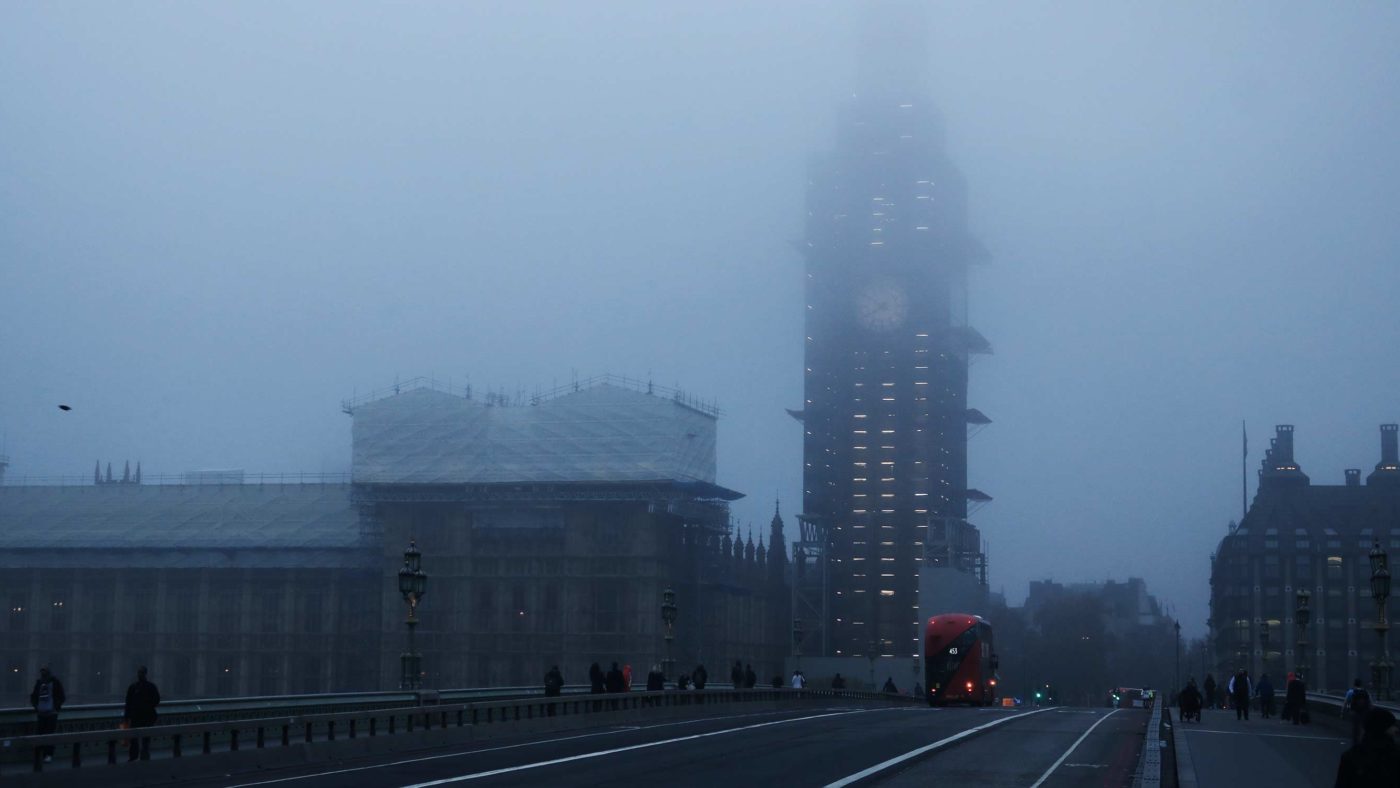The Great British public have had it with their politicians. Today’s Audit of Political Engagement, published by the Hansard Society, starkly illustrates the depth of Brexit Britain’s political malaise.
Among a slew of dispiriting findings, 56 per cent of voters think the country is in decline and 63 per cent think the political system is rigged in favour of the rich and powerful.
The fact that more than half of voters think we need a “strong leader willing to break the rules” suggests many have grown impatient with the endless to-ing and fro-ing of Brexit and yearn for clear-cut solutions. Similarly, more than four in ten think things would be better if the Government spent less time dealing with votes in Parliament.
As the graph below illustrates, a big majority of the electorate also feel powerless. Just 15 per cent think they have influence on public policy on a national level, and even at local level it’s only 25 per cent.
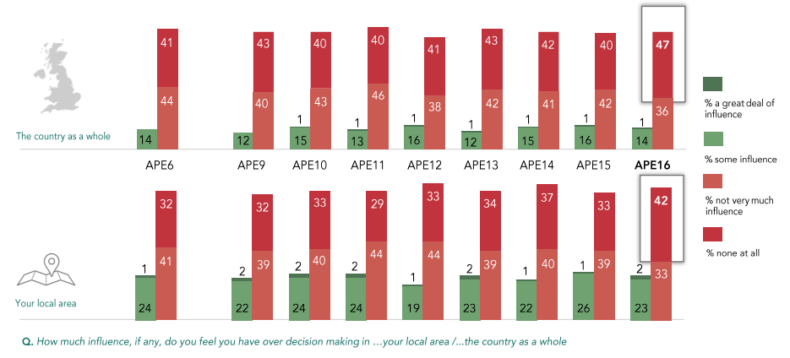
The response for a significant chunk of the population has been simply to ignore politics, with almost one in three voters saying they never discuss government or politics – yet another reminder to Westminster villagers that a lot of the country do not share their fascination with every cough and spit in SW1.
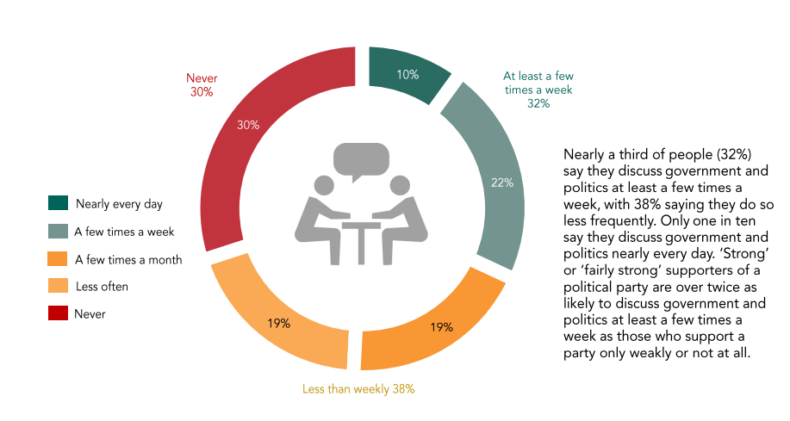
While it’s tempting to panic faced with such findings, a look through the years the APE has been conducted suggests the real watershed was the 2009 expenses scandal.
For instance, the number of people who think the system could be improve either “quite a lot” or “a great deal” is at its highest level in the history of the survey.
That’s certainly not an encouraging finding, but it’s also only three percentage points above the level in 2010, when the aftermath of the expenses scandal was still keenly felt. Moreover, it’s only 12 percentage points higher than the first year the APE was conducted, 2004.
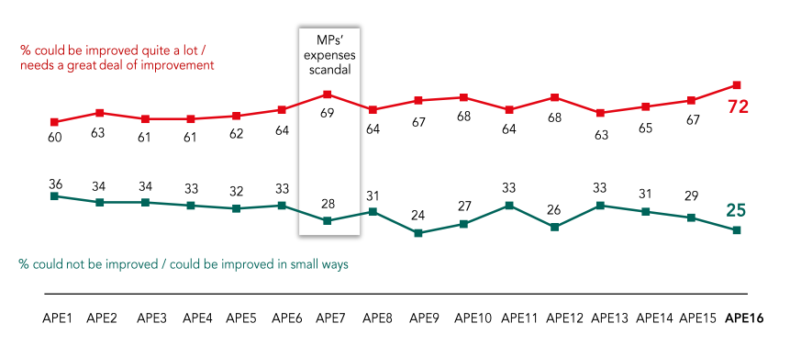
Where there is a very clear trend is in people’s faith in using referendums to resolve public policy issues.
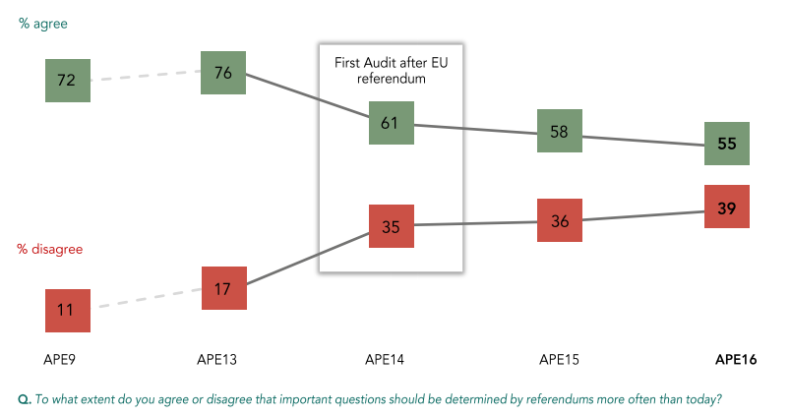
What many of the APE’s findings do underscore is the yearning for a sense of clarity and conviction in politicians, something that Theresa May has signally failed to offer in the 1,000 days since she entered Number 10. The findings certainly chime with the intense anti-politics sentiment revealed in recent polling from Lord Ashcroft, as CapX editor Oliver Wiseman noted over the weekend.
Jeremy Corbyn’s supporters would claim he offers that, though the aggregate of opinion polls would suggest the public are unconvinced. Given a Tory leadership election is in the offing, there should be a real opportunity for a candidate with a crisp, clear platform to capture the public’s imagination – whether such a person exists within the top ranks of the Conservative Party is another matter altogether.

